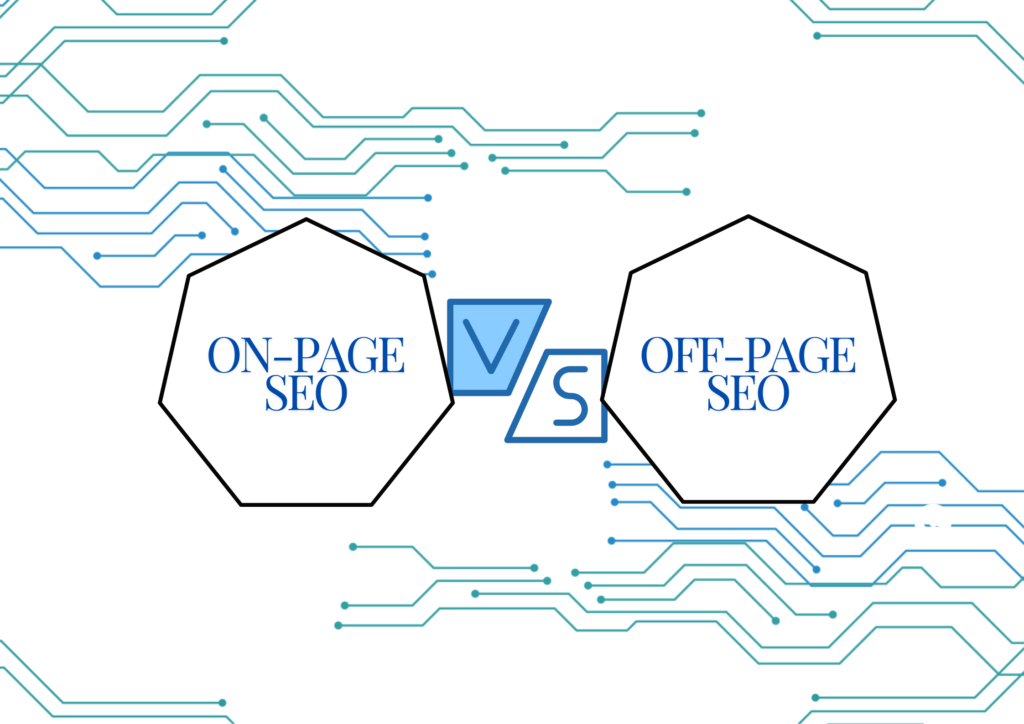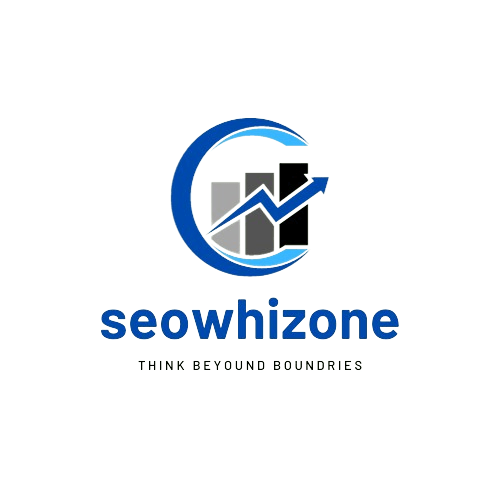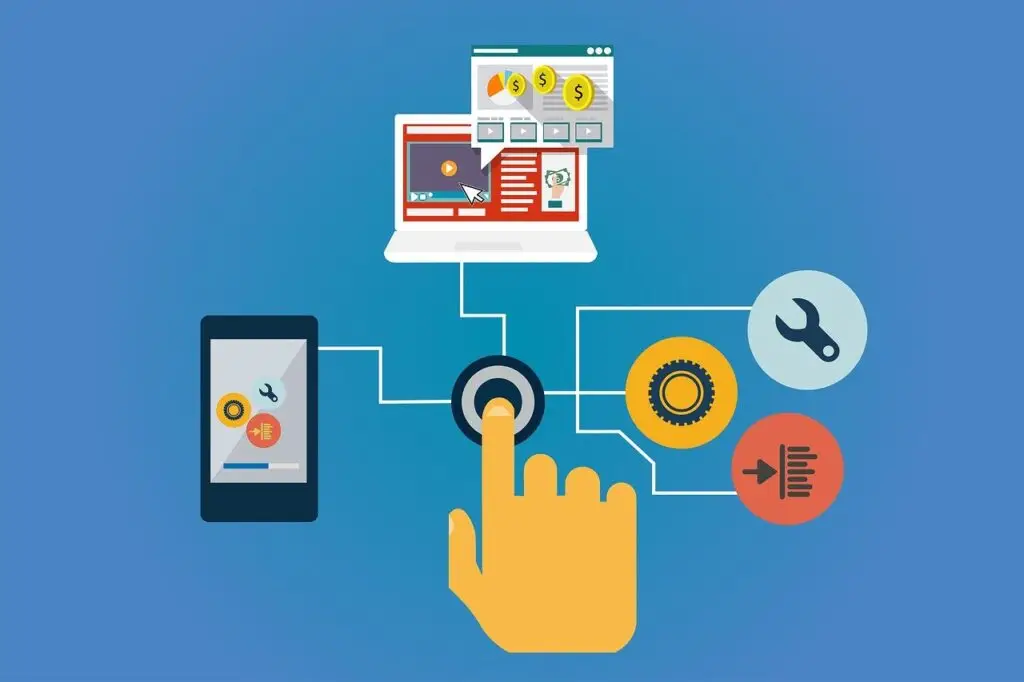Difference Between On-Page and Off-Page SEO
In the world of digital marketing, SEO (search engine optimization) is the cornerstone of driving organic traffic to your website. But if you’ve ever delved into SEO, you might have come across the terms “on-page SEO” and “off-page SEO.” While both are crucial for optimizing your site’s visibility and performance, they address different aspects of SEO. Let’s dive into the core differences between on-page and off-page SEO to better understand how each contributes to your overall strategy.

Introduction
In the bustling digital marketplace, having a robust SEO strategy is like having a reliable compass guiding your way to success. But here’s the catch: not all SEO efforts are created equal. If you’re looking to maximize your website’s potential, understanding the distinction between on-site and off-site SEO is crucial. Both play unique roles in your SEO strategy and mastering them can significantly enhance your website’s visibility and authority.
What is On-Page SEO?
This is all the techniques and ideas you may use right now on your website to raise its search engine results. Consider it as the basis of your SEO campaigns—where you manage and improve components of your website to improve user experience and search engine awareness.
Key Elements of On-Page SEO
Title Tags
Among the most important on-page search engine optimization components is the title tag. This clickable headline appears in search results and directs search engines to the page’s contents. A creative, keyword-rich title tag will greatly improve your click-through rates.
Meta Descriptions
Under the title tag in search results, meta descriptions—which offer a brief overview of a page’s contents—show up. Although they have no direct impact on rankings, a well-written meta description may attract more clicks by enthralling potential visitors with a clear, appealing preview.
Header Tags
Header tags (H1, H2, H3, etc.) organize your material so that search engines and users may more easily browse it. Furthermore, to help search engines understand the context and structure of your content, relevant keywords must be used in header tags.
URL Structure
A clean, descriptive URL structure enhances user experience and makes it easier for search engines to crawl your site. URLs should be concise and include relevant keywords.
Internal Linking
Internal links connect different pages on your site, helping users navigate and spreading link equity throughout your website. Proper internal linking can improve user engagement and distribute authority across your site.
Image Optimization
Images play a significant role in user engagement. Optimizing images with descriptive file names and alt tags helps search engines understand the content and relevance of your images, which can contribute to your overall SEO.
Importance of On-Page SEO
On-page SEO directly influences how search engines and users perceive your website. By optimizing on-page elements, you enhance the user experience, making your site more navigable and engaging. Moreover, well-optimized pages are more likely to rank higher in search engine results, driving more organic traffic to your site.
Best Practices for On-Page SEO
Keyword Research and Usage
Effective keyword research helps you identify terms and phrases your target audience is searching for. Using these keywords strategically in your content, titles, and meta descriptions can improve your chances of ranking higher in search results.
Content Quality and Relevance
High-quality, relevant content is key to engaging your audience and keeping them on your site longer. Regularly updating your content and ensuring it meets user intent can positively impact your rankings.
Mobile Optimization
With mobile traffic on the rise, ensuring your site is mobile-friendly is crucial. A responsive design that works well on all devices can enhance user experience and improve your SEO performance.
Page Speed Optimization
Page speed affects both user experience and search engine rankings. Faster-loading pages provide a better experience and are favored by search engines, making page speed optimization a critical aspect of on-page SEO.
User Engagement Metrics
Metrics such as bounce rate, time on page, and pages per session provide insights into user behavior. Improving these metrics through better content and user experience can positively influence your SEO performance.
What is Off-Page SEO?
Off-page SEO encompasses all the actions taken outside your website to improve its search engine rankings. Unlike on-page SEO, which you can directly control, off-page SEO involves building your site’s reputation and authority through external factors.
Key Elements of Off-Page SEO
Backlinks
Backlinks are links from other websites pointing to your site. High-quality, relevant backlinks signal to search engines that your site is credible and valuable, which can enhance your rankings.
Social Media Engagement
Active social media profiles and engagement can drive traffic to your site and increase its visibility. Sharing content and interacting with followers can indirectly boost your SEO efforts.
Brand Mentions
Mentions of your brand or website across the web, even without a direct link, can contribute to your site’s authority. Positive brand mentions help build trust and credibility.
Influencer Marketing
Collaborating with influencers can expand your reach and drive traffic to your site. Influencers can help amplify your content and build high-quality backlinks.
Importance of Off-Page SEO
It is crucial for establishing your site’s authority and credibility. By earning high-quality backlinks and engaging with users on external platforms, you build a strong reputation that supports your site’s rankings.
Best Practices for Off-Page SEO
Quality Backlink Strategies
Focus on acquiring backlinks from reputable and relevant sites. Quality is more important than quantity when it comes to backlinks, as high-quality links have a more significant impact on your SEO.
Effective Social Media Campaigns
Develop engaging social media campaigns that drive traffic to your site and encourage sharing. Active participation in social media can help boost your online presence and support your off-site SEO efforts.
Leveraging Influencer Partnerships
Partner with influencers who align with your brand values and have a relevant audience. Influencers can help increase your site’s visibility and drive quality traffic.
Monitoring Online Reputation
Regularly monitor your online reputation and address any negative feedback. Maintaining a positive online image helps build trust and supports your SEO efforts.
Comparing On-site and Off-site SEO
Focus and Scope
On-site SEO focuses on optimizing elements within your website, while off-site SEO revolves around building your site’s authority through external factors. Both are integral to a comprehensive SEO strategy but address different aspects of optimization.
Direct vs. Indirect Impact on SEO
On-page SEO has a direct impact on search engine rankings as it involves optimizing elements on your site. Off-page SEO, on the other hand, influences rankings indirectly by enhancing your site’s authority and reputation.
Implementation Techniques
On-page is implemented through technical and content-related changes on your site, while off-page involves external strategies like backlink building and social media engagement.
Measurement and Analysis
On-site SEO can be measured through metrics like page performance and user engagement. Off-site SEO is assessed through backlink quality, brand mentions, and social media metrics.
Common Misconceptions
On-site SEO vs. Content Marketing
While on-site SEO includes optimizing content, content marketing is a broader strategy involving content creation and promotion. Content marketing supports SEO efforts but encompasses additional aspects beyond on-page optimization.
Off-site SEO vs. Link Building
Link building is a component of off-site SEO but does not encompass the entire scope. In addition to link building, off-page SEO includes other factors such as social media engagement and brand mentions.
Conclusion
Understanding the difference between on-page and off-page SEO is essential for crafting a well-rounded SEO strategy. On-page SEO focuses on optimizing elements within your site to improve the user experience and search engine rankings, while off-page SEO builds your site’s authority through external efforts. Balancing both aspects will help you create a robust SEO strategy that enhances your website’s visibility and performance.
FAQs
- What are some common on-Site SEO mistakes to avoid?
Common mistakes include keyword stuffing, poor meta descriptions, and slow page speeds. Ensuring your content is well-optimized, engaging, and user-friendly is key. - How can I effectively build high-quality backlinks?
Focus on creating valuable content that others want to link to, reach out to relevant websites for guest blogging opportunities, and engage in meaningful industry collaborations. - Does off-Site SEO affect local search results?
Yes, it can influence local search results. Building local citations, getting reviews, and engaging with local influencers can enhance your local SEO efforts. - How often should I update my on-Site SEO strategies?
Regular updates are recommended to stay aligned with evolving search engine algorithms and changing user preferences. Periodic reviews and adjustments are essential. - Can social media influence off-Site SEO?
Yes, social media can indirectly influence it by driving traffic, increasing brand visibility, and encouraging social signals that may contribute to your site’s authority

